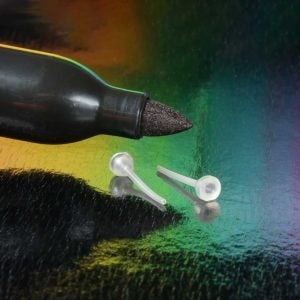Preventing IP theft in medtech manufacturing

Preventing IP theft in medtech manufacturing is more than revenue. It hurts patient results. This reason alone should motivate your team to evaluate who you outsource to. Luckily, there are straightforward questions your team can ask to avoid IP disaster.
Designing next-gen life-saving medical devices is difficult, but for Sourcing Managers and R&D Engineers, your intellectual property (IP) could be the Achilles heel of your process. Not only can your innovations be stolen, but perhaps more important is that you are robbed of a better end result. Vital collaboration on your project isn’t possible when you’re walking on IP eggshells.
IP Theft Costs US Manufacturers Hundreds of Billions
First, let’s call out the problem. IP theft in the United States is costing American companies dearly. “The annual cost to the U.S. economy of counterfeit goods, pirated software, and theft of trade secrets is between $225 billion and $600 billion,” according to the Federal Bureau of Investigation.
But wait, there’s more.
R&D is expensive, time consuming, and no engineer wants their hard work stolen, forcing them to compete against their own novel design. Product breakthroughs last only as long as the safeguards that keep them secret. Medical devices are often made for 5-10 years, therefore generating and maintaining an advantage is crucial for capturing market share and recouping your investment.
Revenue-loss alone should motivate directors to consider new strategies aimed at preventing IP theft in medtech manufacturing, but there’s more.
IP Theft Hurts The Collaboration Process
World-class engineers know a transparent and collaborative relationship with their manufacturing partners is directly responsible for more robust, effective and increasingly efficient designs. As is the case at Accumold, our DfMM team is heavily involved in the design process from the beginning. Clients achieve the impossible the closer that collaborative relationship is.
But what if you can’t safely collaborate? These costs are a bit harder to quantify.
Building next-gen medical devices requires failure, experimentation and transparency with brilliant minds from diverse engineering backgrounds. In that process, it’s normal for novel designs and sensitive IP to be discussed. Many breakthroughs for new designs only come from collaborations. Great engineers know diversity of perspective and background improves outcome
Preventing IP theft in medtech manufacturing, isn’t random. And it’s not done via gag-order. It’s about thinking ahead and asking the right questions.










